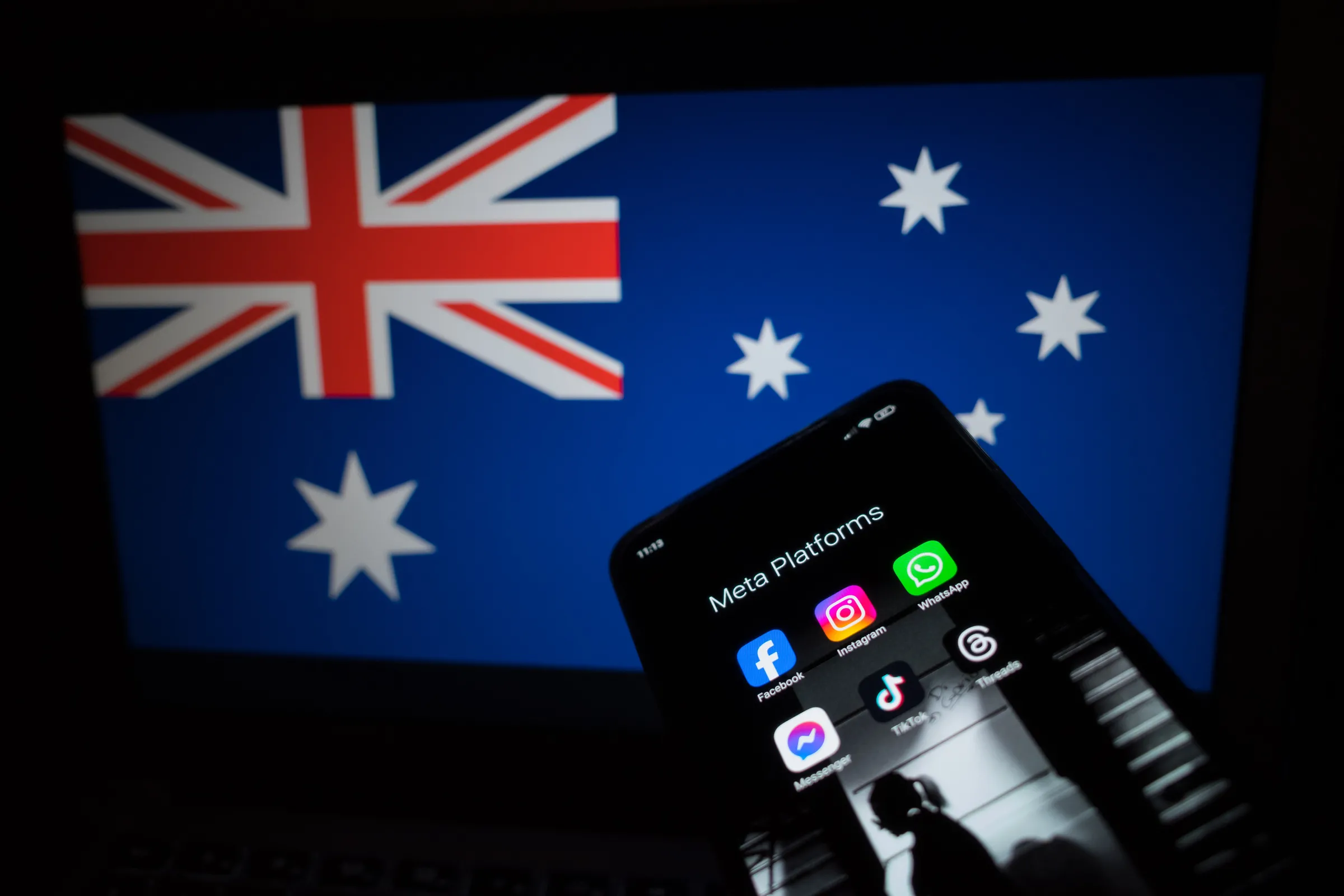Australia’s Under-16 Social Media Ban Divides Public Opinion

Australia has implemented a groundbreaking social media ban for children under the age of 16, triggering a mix of reactions from citizens, tech companies, and advocacy groups. Announced late Thursday and set for full enforcement by 2025, the law prohibits minors from accessing platforms like Facebook, Instagram, and TikTok, with violators facing fines up to AUD 49.5 million (USD 32 million).
Prime Minister Anthony Albanese defended the move, emphasizing the need to protect children from the physical and mental health risks associated with excessive social media use. He highlighted specific concerns, such as harmful body image portrayals targeting girls and misogynistic content aimed at boys.
“Platforms now have a social responsibility to ensure the safety of our kids,” Albanese stated, adding that the new law enables parents to have “different conversations” about social media use.
Mixed Reactions
Public opinion in Australia is deeply divided. Some, like Sydney resident Francesca Sambas, praised the ban for addressing inappropriate content, saying, “Social media for kids is not really appropriate; sometimes they can look at something they shouldn’t.”
However, others, such as 58-year-old Shon Klose, criticized the government’s decision as authoritarian. “This government has taken democracy and thrown it out the window,” she said, expressing outrage over the lack of public consultation.
Young users also voiced skepticism, with 11-year-old Emma Wakefield suggesting she would find ways to bypass the restrictions.
Global Comparisons and Implementation Challenges
While other countries, including France and some U.S. states, have introduced laws requiring parental permission for minors to access social media, Australia’s ban is the most stringent to date. A similar law in Florida, banning social media use for children under 14, is currently under legal challenge.
Tech companies, particularly TikTok, have expressed concerns over the policy. A TikTok spokesperson criticized the rushed legislative process, warning that such restrictions could drive young users to “darker corners of the internet.” Advocacy groups and mental health experts have also cautioned against potential unintended consequences.
Albanese defended the timing of the legislation, arguing that early action was necessary to address the harms of cyberbullying and online exploitation. “We know that implementation won’t be perfect, just like alcohol bans for under-18s aren’t foolproof, but it’s the right thing to do,” he said.
Political and International Implications
The bill gained bipartisan support, passing swiftly through parliament alongside 30 other pieces of legislation on its final sitting day of the year. Critics have called out the lack of debate, with some lawmakers accusing the government of undermining democratic scrutiny.
Internationally, the law could strain ties with the U.S., where tech mogul Elon Musk, a prominent figure in President-elect Donald Trump’s circle, suggested the ban could pave the way for broader internet censorship in Australia.
This latest move adds to Australia’s history of regulatory clashes with tech giants. The country was the first to mandate payments from social media companies to news outlets and is preparing additional penalties for platforms failing to combat online scams.





















